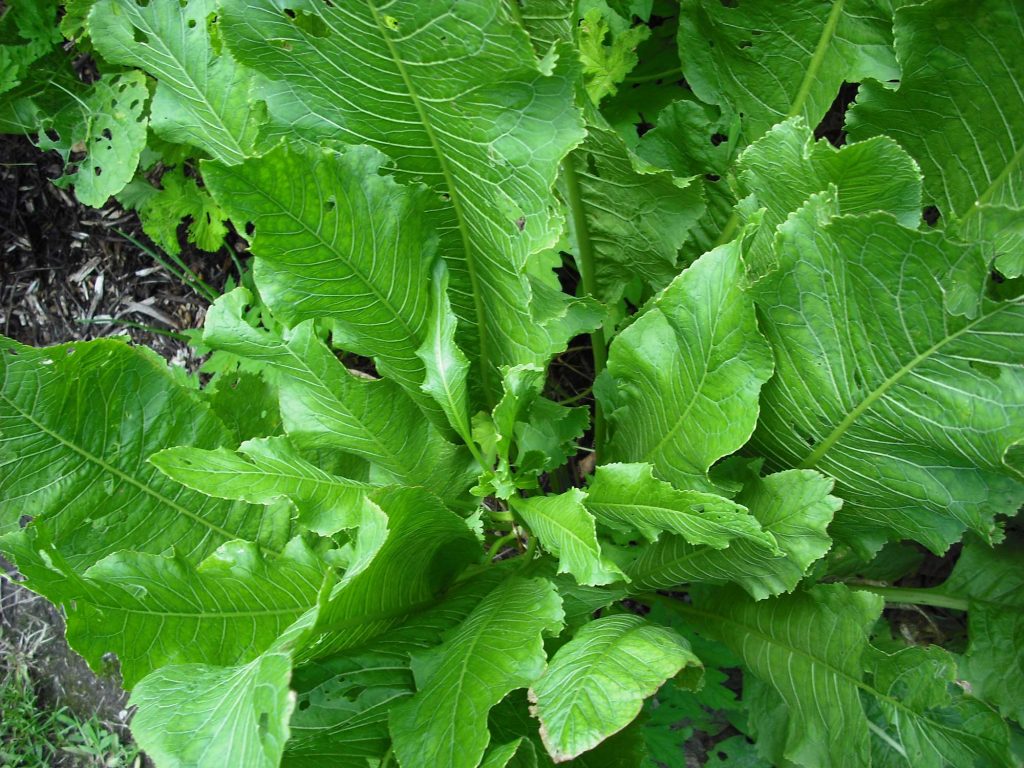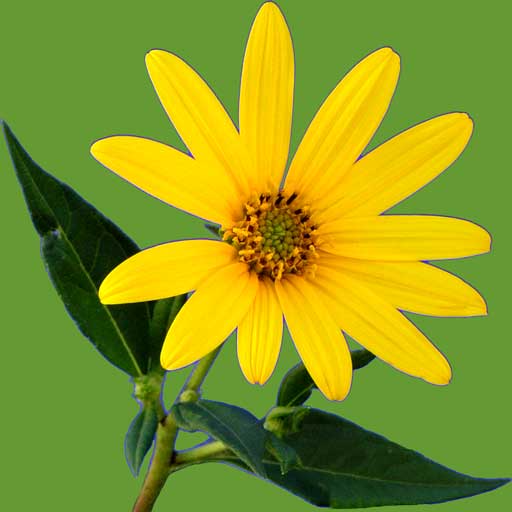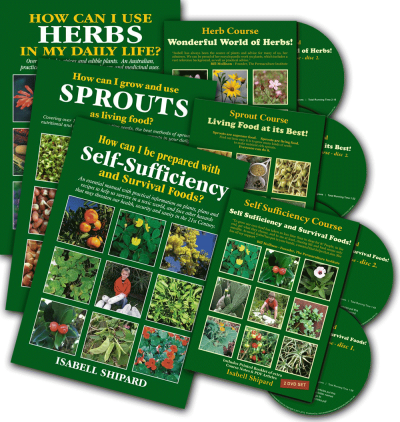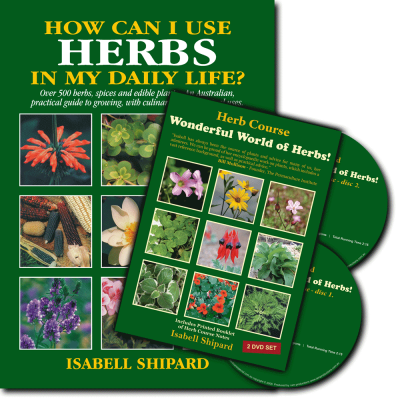Mountain Radish
Armoracia rusticana syn. Cochlearia armoracia
F. Brassicaceae

Description
Indigenous to Europe and Asia, horseradish is a hardy perennial with large 50cm long basal leaves with thick petioles, forming a rosette near the ground. Leaves are unusual in that, two, quite different; leaf forms can appear on the same plant. Some are scalloped, wavy, lanceolate leaves, while others can be very deeply cut. Midribs beneath leaves are very raised. Flower stems rise higher than the leaves. Clusters of small, four-petalled, white flowers set at the stem terminals. Rarely, are seed viable.
… … omitted text, please see How can I use HERBS in my daily life? for full text.
Medicinal Uses
Horseradish is an extremely powerful stimulant to the body. The whole plant is pungent and hot to taste, but the flavour is intensely concentrated in the root. Hot compounds are released when the root is cut, or by chewing the root, which activates an enzyme action. Epidemiological studies have found that diets high in these properties (which are rich in plants of the Brassicaceae family) are associated with a reduced risk of gastrointestinal cancer. During the Middle Ages, the whole plant was valued as medicine and condiment. Horseradish was one of the great spring cleaning herbs to revitalise the body after winter.
… … omitted text, please see How can I use HERBS in my daily life? for full text.
The antibiotic and germ-killing properties of the plant have been used, for centuries, to protect the intestinal tract from harmful, pathogenic bacteria.
… … omitted text, please see How can I use HERBS in my daily life? for full text.
Horseradish is also taken to help purify the bloodstream and cleanse the body of wastes. The warming effect, when taking the herb, also increases the blood flow throughout the body, particularly to extremities, stimulating the circulation. Increased blood flow, means increased rate of healing, a valuable aid for any ailment, particularly inflammatory conditions.
Horseradish has the ability to activate gastric secretions, with an instant flow, and therefore promotes digestion, being helpful for indigestion and griping pains. The herb acts on the peristaltic action of the intestines, and this also helps to relieve flatulence. Horseradish helps to sterilise the stomach contents by antiseptic action.
… … omitted text, please see How can I use HERBS in my daily life? for full text.


